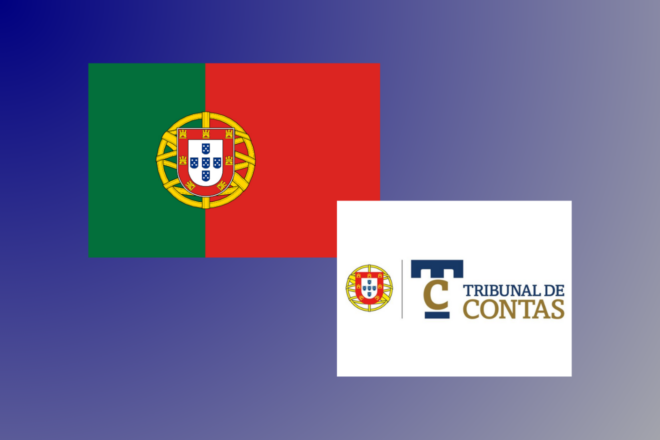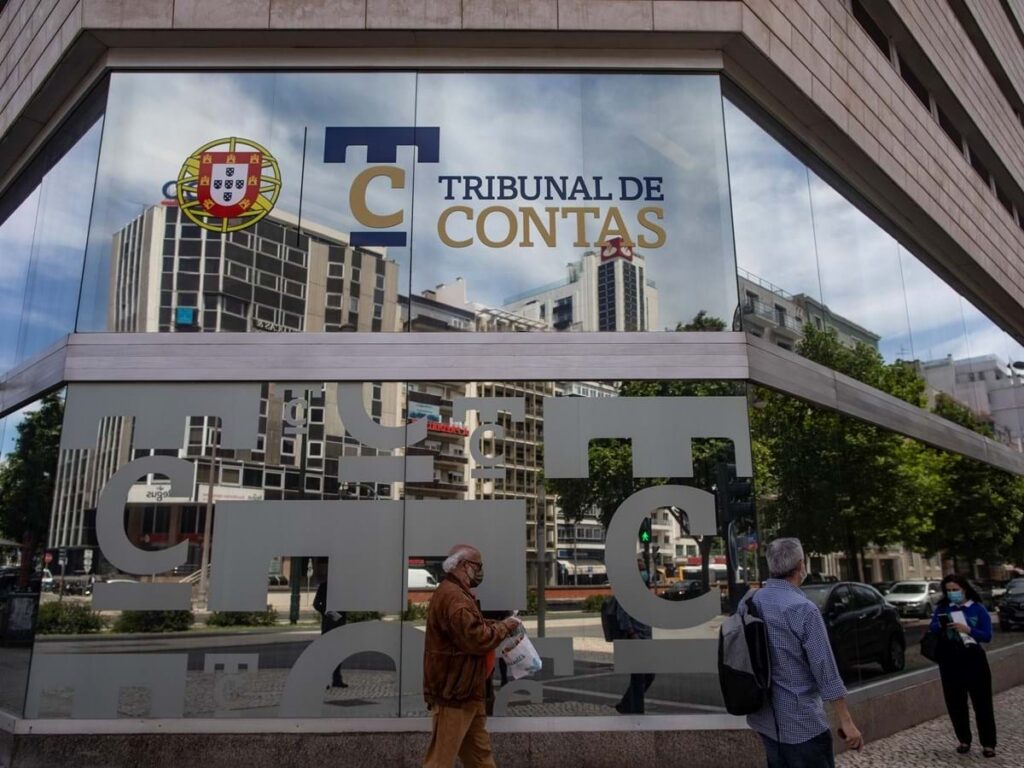The relationship between audit and the enforcement of financial responsibilities: Experiences from SAI of Portugal

By: Tribunal de Contas (SAI Portugal)
Introduction
The SAI of Portugal (Tribunal de Contas) is currently an institution that combines both the Anglo-Saxon and the Jurisdictional models of Supreme Audit Institutions. It means that although the audit function is a main function activity of the Court, it also complimentarily has also the power to judge financial liabilities.
Thus, the enforcement of financial liabilities is one of the most relevant implications of the audits, along with the follow-up of recommendations and other developments.

1. The Portuguese Court of Auditors: A brief characterization of functions and competences.
In 1976, the Portuguese Court of Auditors recovered the legal-constitutional status that had been granted to it by the Constitution of 1838. Placed among the other Courts, it has definitely become an integral part of the Portuguese judicial structure, benefiting from the prerogatives of independence typical of the courts (self-government, irremovability, irresponsibility, compulsory decisions and exclusive subjection to the law). As a result of that independence, the Court of Auditors’ President is appointed by the President of the Republic on a proposal from the Government, while the other members of the Court, initially appointed by parliamentary choice, are currently appointed by its President following a public tender.
As for the assigned tasks, the Portuguese Court of Auditors has been gradually strengthening its functional and organisational framework, asserting itself as a Court of specialised jurisdiction (financial jurisdiction), but sui generis, in that it also performs jurisdictional functions, like the other Courts, and, at the same time, functions of financial control. This is why it is considered the highest (or higher) institution for financial control of the Portuguese Democratic State.
Accordingly, the Constitution of the Republic expressly confers on powers of financial control and to enforce financial liabilities, powers which are densified by the ordinary law in the following terms:
- Issue an opinion and certify the State Accounts, the Account of the Assembly of the Republic, the Account of the Presidency of the Republic, the Accounts of the Autonomous Regions (Azores/Madeira) and the respective Legislative Assemblies, ruling on the legality and financial regularity of all transactions carried out in the relevant economic year;
- A priori control of the legality and budgetary appropriation of acts and contracts generating public expenditure;
- Carry out audits, at its own initiative, at any time, of any kind or nature, in this context being able to assess the legality, but also the economics, efficiency and effectiveness of public management;
- Verify the accounts of all public entities individually considered (administrative, business, foundational or associative).
In addition, the Portuguese Court of Auditors has the power to enforce financial liabilities, by demanding the reimbursement of funds or public values to all those who have made illegal use of them, to the detriment of the public funds and assets (reintegrative financial liability), and/or the payment of fines in the event of failure to comply with rules governing public financial activity (financial liability).
2. Audit and Financial Liability
The jurisdictional activity carried out by the Portuguese Court of Auditors is complementary to the control activity. The aim is to ensure, following audits in which situations likely to constitute a financial infringement breach are identified, that the inherent liability is effectively enforced.
However, as regards the same institution which audits and holds accountable, the legitimate question is how the independence of its exercise and the right to a fair trial are ensured, as determined by national law and international conventions. In particular, we refer to compliance with the principles inherent in judicial proceedings, which include the principles of independence and impartiality, equality of legal remedies, adversarial proceedings, the presumption of innocence and the right to a double degree of jurisdiction. The answer to this question will also help us understand how the audit is linked to the enforcement of financial responsibilities.
2.1. Independence and impartiality
The Constitution of the Portuguese Republic grants the Court of Auditors the status of a sovereign body, placing it in the same category of the other Courts, thereby guaranteeing its independence, not only from the executive and legislative powers, but also from the entities subject to its jurisdiction and from the lobby groups and established interests. At the same time, it should be emphasised that the members of the Court of Auditors are judges, enjoying all the constitutionally inherent prerogatives. In addition, when recruited through a public tender, there is no possibility of external interferences by an appointment by the Government or Parliament. The same is true of its President, whose appointment, it is recalled, is a competence of the President of the Republic, before whom he takes office and gives a commitment of honour, in compliance with the Constitution of the Portuguese Republic.
From an organisational point of view, the Portuguese Court of Auditors was conceived with the aim of ensuring the necessary independence and separation between the audit and the jurisdictional functions. Indeed, the structuring of the Court of Auditors by specialized Chambers (1- A priori control; 2 – Audit; 3 – Financial Liabilities), with clearly defined powers of control and enforcement of financial liabilities, confers the guarantee that the judgment that is formed in audit on the existence of probable evidence of financial infringements, does not bind “the judge of judgment”. In this way it can be said that we are dealing with different functions, which are carried out by equally different Courts.
In addition, the Law ensured the independence of those who have the right to file a financial liability procedure, which means that the existence of judicial proceedings is dependent on the indictment by an independent entity of the Court of Auditors. In the first place, such legitimacy is vested in the Public Prosecutor’s Office; in the alternative, to the internal control bodies.
2.2. The principles of adversarial and equality of procedural means
The principles of adversarial proceedings and equality are essential elements of a fair trial. As is well known, the adversarial principle implies that each party is called upon to provide its reasons in fact and in law, to offer its evidence, to accompany the evidence submitted by the other party and to discuss the value and outcome of one and the other. For the effective implementation of this principle, it is essential that procedural parity is ensured and that the parties should benefit from the same conditions and equal opportunities for obtaining justice.
The implementation of the adversarial principle is of particular importance when, following an audit, a financial liability procedure is initiated. In such a case, the Law of the Court guarantees the persons concerned, prior to the initiation of those proceedings, the right to be heard in respect of the facts alleged against them, their consequences, the legal regime, and the amounts to be repaid or paid (Article 13, n 2, of the Law on the Court). That means that the proceedings should only be initiated if that principle is respected. Therefore, in order to ensure compliance with the adversarial principle, audits should identify and adequately substantiate the following aspects:
- The facts (actions or omissions potentially contrary to the law);
- The rules breached;
- The persons responsible, if any;
- The value and/or damage produced;
- The classification of any liabilities involved, such as reintegrative financial liability and/or financial liability for penalties;
- All supporting documents.
In addition, procedural parity is ensured through various legally established mechanisms. This, in particular, refers to the right of representation by a lawyer for the exercise of the adversarial procedure, to the possibility of requesting an extension of the time-limit for contesting, or to ensuring access to all available information necessary for the exercise of the adversarial procedure.
2.3. The principle of the presumption of innocence
The principle of the presumption of innocence is constitutionally enshrined. This is a principle whose observance is of particular relevance in the area of criminal liability and, of course, does not overlook its impact on other liability proceedings.
Regarding the enforcement of financial liabilities, the Court of Auditors endorses this principle in all its dimensions.
2.4. The right to double jurisdiction
The right to double jurisdiction, which translates into the right to have judicial decisions reviewed by a court other than that which issued them, is equally accepted in the financial jurisdiction. Thus, in financial liability cases there is an appeal against the final decisions given at first instance, by a judge, to the Plenary of the 3rd Chamber composed of a panel of three judges.
3. Final note
Our incursion into the jurisdictional activity of the Court of Auditors is sufficiently illustrative of how its exercise is linked to the audit activity. This is ensured by the way in which the Court of Auditors is organised, in independent chambers, with clearly defined functions and mediated by an equally independent external body: the Public Prosecution Service. This context not only guarantees the necessary independence between the “audit function” and the “jurisdictional function”, but also the independence of the body entitled to bring actions for financial liabilities based on evidence of infringements collected during the audit. This ensures full protection of public financial management.
This is all the more important when one is fully aware of the positioning and role of Supreme Audit Institutions in the modern rule of law. Strictly speaking, although there are other bodies endowed with independence and responsible to monitor and ensure compliance with financial legality, Supreme Audit Institutions are specially positioned for this purpose, not only because they assume the nature of sovereign bodies, given their inclusion in the respective judicial structure, benefiting, to this extent, from all the prerogatives typical of the Courts, but also for their special purpose to ensure accountability and transparency in the management of public funds and assets, on behalf of the public interest.
In this context, we consider that the jurisdictional function of the Court is fully aligned with the principles stated in INTOSAI P50.





